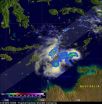(Press-News.org) Germany, Austria and Cuba have at least one thing in common: they have all experienced what it means to be 'left out in the cold' and be considered 'bad company' by Western powers. However, just as Iran and South Africa, these three countries have handled this form of stigmatization very differently. According to new research, the reason for this is that diplomatic pressure and sanctions by the international community (the 'shaming method' ) fail to have the intended effect because isolation and shaming may boost national pride and sense of cohesion and thus support the regime in power. This is the main finding in PhD and Associate Professor Rebecca Adler-Nissen's new scientific article.
"In the West, we have long believed that we could educate other countries to behave according to our norms, and during the past 20 years we have witnessed an increase in the use of 'shaming' in international politics. Western ideals about human rights and democracy are used to justify the use of international pressure to force other nations to adhere to our norms and values. However stigmatization and shaming often fail to work. Sometimes it actually backfires, and ends up affecting the instigator instead," says Rebecca-Adler Nissen, who goes on to highlight the fact that a country such as Cuba has made a virtue out of being excluded from the Western-dominated international society by claiming that it is a different and better model of society.
Food for thought
Rebecca Adler-Nissen emphasizes that she is not advocating to drop sanctions such as freezing financial assets, imposing travel restrictions, or breaking off diplomatic ties, but she points out that the new insights give food for thought.
"Western politicians should be more careful when using these political instruments, because they do not always work as intended. We need to have a deeper knowledge of the countries in question, and to ask ourselves if the elites aspire to share Western values in the first place. If not, sanctions and pressure may still be used, if so it is more a question of the us needing to send a signal that a global set of values, dominated by the West, still exists, rather than attempting to influence the countries in question," she says.
New world order – new values
Rebecca Adler-Nissen has identified three strategies used by countries that have been stigmatized through sanctions and pressures: acceptance of the stigma, rejection of the stigma, and counter-stigmatisation. She uses the cases of Germany, Austria and Cuba to illustrate the three strategies. She explains that Germany is a country where sanctions and stigmatisation had the intended effect. After the Second World War, the country accepted its guilt, and Germany now stands proud as a model of a deeply rooted democracy and respect for human rights. By contrast, Austrian political elites rejected suggestions that they had part in the horrors of Nazism, while Cuban politicians, in the wake of the revolution, made a virtue of not giving into Western demands in spite of swingeing sanctions imposed by the United States.
"In the long term, knowledge about shame, pride and stigma may help us understand why diplomatic pressure on a country such as Iran has had limited effect, while it did influence the apartheid regime in South Africa to some extent," says Rebecca Adler-Nissen, who continues:
"Attempts to generate shared norms for state behaviour will become even more difficult in the future. The values of the Western world – and of the United States in particular – dominated international relations in the past century, and they were the standards by which other countries were measured. But now that countries including China, India and Brazil are beginning to play a more prominent role in the global world order, the West can no longer count on the predominance of our perception of right and wrong."
INFORMATION:
Rebecca Adler-Nissen's findings were recently published in the article "Stigma Management in International Relations: Transgressive Identities, Norms, and Order in International Society" in the scientific journal International Organization.
About the research:
Rebecca Adler-Nissen came up with the idea for her research on the basis of her PhD project, in which she interviewed and observed Danish and British civil servants in Brussels. She discovered that the British EU opt-outs were treated as a stigma, i.e. something abnormal. She therefore decided to examine the roles played by shame and pride in international politics in general.
She started to focus on theories about shame, normality and social rejection, and soon she discovered that there are a great many different ways to deal with 'being different'. She subsequently developed a new set of theoretical concepts based on the work of sociologists such as Erving Goffman, who has investigated how homosexuals, and people with mental and physical disabilities deal with the views of the majority and feelings of isolation.
Rebecca Adler-Nissen is now working to develop her theory with studies of how Greek and German diplomats are dealing with mutual criticism and shame in connection with the euro crisis.
Why international sanctions do not always work
2014-03-18
ELSE PRESS RELEASES FROM THIS DATE:
Many low-income women don't want to leave hospital after false-labor diagnosis
2014-03-18
More than 40 percent of pregnant low-income women discharged from the hospital after a diagnosis of false or early labor did not want to be sent home, with the most common reasons being that they were in too much pain or lived too far away, according to a study by Baylor University's Louise Herrington School of Nursing (LHSON) and Parkland Health & Hospital System.
Many of the women dissatisfied with being sent home stated that receiving specific written instructions about when to return to the hospital may have made them happier about going home. However, there was evidence ...
Indochina agricultural fires still ongoing
2014-03-18
Agricultural fires continue to burn in the Indochina region as evidenced by this Aqua image taken on March 18, 2014. This natural-color image was taken by the Moderate Resolution Imaging Spectroradiometer, MODIS, aboard the Aqua satellite. More fires have been set in both Burma and Laos since the last image taken by MODIS on March 07. Actively burning areas, detected by MODIS's thermal bands, are outlined in red. Fire is used in cropland areas for pest and weed control and to prepare fields for planting. Crop residue burning helps farmers as it is a cheap and effective ...
Scientists open a new window into quantum physics with superconductivity in LEDs
2014-03-18
A team of University of Toronto physicists led by Alex Hayat has proposed a novel and efficient way to leverage the strange quantum physics phenomenon known as entanglement. The approach would involve combining light-emitting diodes (LEDs) with a superconductor to generate entangled photons and could open up a rich spectrum of new physics as well as devices for quantum technologies, including quantum computers and quantum communication.
Entanglement occurs when particles become correlated in pairs to predictably interact with each other regardless of how far apart they ...
NASA sees some strength left in remnants of Tropical Cyclone Gillian
2014-03-18
NASA's TRMM satellite passed over the remnants of Tropical Cyclone Gillian and spotted some towering thunderstorms and areas of heavy rainfall, indicating there's still power in the former tropical storm.
Over the past few days former tropical cyclone Gillian's remnants moved from the Gulf of Carpentaria into the Timor Sea. The Tropical Rainfall Measuring Mission satellite known as TRMM found a few strong convective thunderstorms when it passed above these remnants on March 18, 2014 at 0431 UTC. TRMM's Precipitation Radar (PR) instrument measured rain falling at a rate ...
Incentives needed to improve grain markets in India
2014-03-18
URBANA, Ill. – Even after the agricultural reforms of 2002-03, for wheat, rice, and pearl millet farmers in India, grain markets are still pretty sticky. Two University of Illinois economists analyzed infrastructure of interstate trade for food-grain crops in three Indian states and found that grain farmers are unable to cash in on India's market reforms and take advantage of a price difference between two or more markets.
"We wanted to see if there was more integration in the markets since the 2002 reforms," said Kathy Baylis. "We were surprised at how little integration ...
MU study uses video-game device with goal of preventing patient falls
2014-03-18
Technology used in video games is making its way to hospital rooms, where researchers at the University of Missouri hope to learn new ways to prevent falls among hospital patients.
Between 700,000 and 1 million people each year fall in U.S. hospitals, according to the Agency for Healthcare Research and Quality. Hospitals nationwide are looking for ways to reduce that number.
"Since 2008, we've investigated ways to detect and prevent falls by older adults living in independent senior apartments," said Marilyn Rantz, PhD, RN, a leader of the MU research team and a professor ...
Reintroduction experiments give new hope for a plant on the brink of extinction
2014-03-18
A critically endangered plant known as marsh sandwort (Arenaria paludicola) is inching back from the brink of extinction thanks to the efforts of a UC Santa Cruz plant ecologist and her team of undergraduate students.
Ingrid Parker, the Langenheim professor of plant ecology and evolution at UC Santa Cruz, got involved in the marsh sandwort recovery effort at the request of the U.S. Fish and Wildlife Service (USFWS). Although it used to occur all along the west coast, from San Diego to Washington state, this wetland plant with delicate white flowers had dwindled to one ...
New therapeutic target discovered for Alzheimer's disease
2014-03-18
A team of scientists from the University of California, San Diego School of Medicine, the Medical University of South Carolina and San Diego-based American Life Science Pharmaceuticals, Inc., report that cathepsin B gene knockout or its reduction by an enzyme inhibitor blocks creation of key neurotoxic pGlu-Aβ peptides linked to Alzheimer's disease (AD). Moreover, the candidate inhibitor drug has been shown to be safe in humans.
The findings, based on AD mouse models and published online in the Journal of Alzheimer's Disease, support continued development of cysteine ...
Chronic sleep disturbance could trigger onset of Alzheimer's
2014-03-18
People who experience chronic sleep disturbance—either through their work, insomnia or other reasons—could face an earlier onset of dementia and Alzheimer's, according to a new pre-clinical study by researchers at Temple University.
"The big biological question that we tried to address in this study is whether sleep disturbance is a risk factor to develop Alzheimer's or is it something that manifests with the disease," said Domenico Praticò, professor of pharmacology and microbiology/immunology in Temple's School of Medicine, who led the study.
Initially, the researchers ...
Parents matter more than they think in how their children eat
2014-03-18
AURORA, Colo. (March 17, 2014) - Helping children learn to eat well can be a challenge. Some children happily eat whatever is put in front of them while others seem to eat like birds and exist more on air than food. A new study by a researcher at the University of Colorado School of Medicine shows that parents influence how much children eat more than they may think.
In this collaborative study between the CU School of Medicine, Baylor College of Medicine and University of Alabama Birmingham, researchers observed normal, everyday mealtimes in the homes of 145 parents ...



